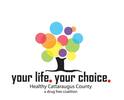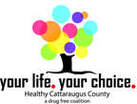Here comes the bad news for all of the Starbucks lovers reading this. Starbucks offers the “short” (8oz), “tall” (12oz), “grande” (16oz) and the “vente” (20oz.). That may not sound too far from the 6 ounces, especially on those days where you just do not have the energy to get motivated. Did you know that 8oz of Starbucks coffee has nearly three times the amount of caffeine than that 6oz cup in the waiting room?? That’s right. That “short” from Starbucks packs a whopping 180mg of caffeine! A “vente” contains over 400mg. A 10oz brewed coffee at Dunkin is about 150mg. (At the end of this blog, you can find a chart showing the caffeine in coffees, teas, pops, waters and more. Test your caffeine knowledge!)
Let’s be honest though. Coffee is not the only source of caffeine now. We have energy drinks, pre workout powders and drinks and diet supplements. Beyond Raw has become one of the industry leaders in pre workout powders and drinks. Yet, a single serving of these products can set you back between 250 and 300mg of caffeine. So, if you start your morning with coffee and then hit the gym, you might be overdoing it. Besides…
I cannot stress this enough…Caffeine has NO NUTRITIONAL VALUE!! What it does have is side effects.
Kids and Caffeine
Again…caffeine has no nutritional value! Your growing child does not “need” caffeine. They may need more sleep or a more balanced diet. But…they do not need caffeine. We get it. Homework takes forever and your child just wants more energy. Caffeine is not the way to go. I know that caffeine is also fairly difficult to avoid. Some restaurants only offer pop and they tend to be cheaper than bottled water. Add in the unlimited refills and it saves money. If your child is going to consume caffeine, please keep this in mind. According to experts, no one under the age of 17 should consume energy drinks.
For kids and teens (ages 13-18), caffeine intake should be capped at 100mg per day. A 20oz bottle of Mountain Dew is approximately 90mg of caffeine. Even coffee-flavored ice creams contain caffeine. Some over-the-counter medications like Excedrin, Goodys and Tylenol can contain caffeine. All of this can have an impact on your child’s health and development.
But…How??
With the rise in popularity and the diversity of offerings, this is a valid question. They say “America Runs On Dunkin” but I think the more accurate slogan is that “Americans Run On Caffeine.” I also think that we have forgotten that caffeine is not harmless. According to Columbia University, growing kids do better with consistent sleep patterns, scheduled meals, frequent social interaction, and opportunities to learn and demonstrate new skills. Schools and after-school activities help to support this growth so that kids can thrive and meet their milestones.
When kids consume caffeine, it not only interferes with this development, but it can increase the risk of (or exacerbate pre-existing conditions) like high blood pressure, kidney disease and anxiety. Caffeine can interfere with healthy sleep patterns. It can be keeping your child up longer at night and making it more difficult for them to wake up. It can make them drowsier during the day, which can lead to “needing” a caffeine boost. Secondly, kids are smaller than we are, which means that caffeine can have a much bigger impact on them.
Short Term Side Effects of Caffeine (can include but are not limited to):
- Anxiety
- Dehydration
- Diarrhea
- Heart Palpitations
- High Blood Pressure
- Increased Heart Rate
- Insomnia
- Jitters
- Nausea
- Restlessness
Long Term Side Effects of Caffeine (can include but are not limited to):
- Addiction
- Headaches
- Withdrawals
What Can I Do?
Ideally, if your child is going to consume caffeine, limit their intake to the daily recommended amount. Reconsider that sale at Tops that sends you out the door with 6 cases of pop. Keep an eye on how much caffeine your child consumes away from home. Your dentist will also thank you because caffeine is usually packed into sweet and sugary drinks!
RESOURCES:
https://casa-trinity.org/
https://www.cuimc.columbia.edu/news/caffeine-and-kids#:~:text=Consuming%20caffeine%20not%20only%20interferes,chronic%20kidney%20disease%2C%20or%20anxiety
CAFFEINE CHART:
https://www.cspinet.org/caffeine-chart


 RSS Feed
RSS Feed